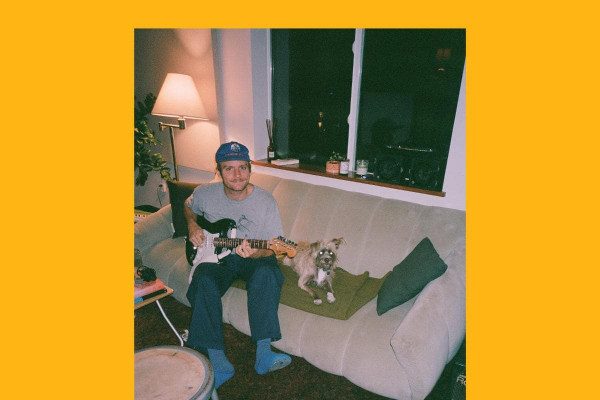Mac DeMarco is a name so evocative that, for some, it immediately conjures online videos of checkered Vans “aesthetically” popping balloons in slow motion to “Chamber of Reflection.” Whether you’re jamming out in your bedroom at 17 or posting emo slideshows on your VSCO to ten followers, DeMarco’s cigarette-clad mix of guitar pop, blue wave, synth, and what he calls jizz jazz, has bled into the popular zeitgeist. In reality, , DeMarco’s sound has refused to remain entirely static. Those looking to freak out the neighborhood may have been surprised by his two most recent releases in 2023: the instrumental LP Five Easy Hot Dogs and his nine-hour-plus, 199-track demo compilation One Wayne G. In fact, his last proper guitar-and-vocals studio album was 2019’s Here Comes the Cowboy, a melancholic collection of porch songs that was already a departure from his usual garage rock sound. Are the salad days really over?
DeMarco’s latest record, Guitar, doubles down on this overarching change, solidifying his shift toward self-reflection and growth. Entirely self-performed, produced, engineered, mixed, and even photographed, it’s the most solitary project of his career. The record features some of Mac’s most sensitive and sophisticated songwriting, a testament to his sonic evolution toward meditative minimalism. Guitar has less of the ease and spectacle of his Cowboy days, instead opting for the rewarding intimacy of forgiveness.
That sense of self-renewal colors the album’s textures. On “Nightmare,” he sings over sparse guitar plucking: “Smoke the whole pack / no turning back from this one,” a confession that lands harder in the wake of his decision to quit smoking and drinking. It’s a striking contrast to the image immortalized in “Ode to Viceroy” or the countless photos of a disheveled DeMarco in 2018 and 2019 — “I look[ed] near-dead,” he admitted this month. The distance between those two versions of himself is precisely what animates Guitar — an artist once synonymous with slacker-cool now committed to something less forgiving of self-destruction.
This doesn’t mean he abandons what made his music instantly recognizable. The record is still full of “Mac riffs,” but here they’re slower, deeper, and refracted through age. On “Sweeter,” he leans into repetition, stretching a simple refrain until it becomes a mantra — a lazy drawl made instantly hypnotic. The patient, reassuring pace of his guitar recalls the quiet melancholy of This Old Dog. It’s less about dazzling hooks and rather about finding the meaning in playing the same chords until they say something new.
That tension between the playful and the profound is what gives Guitar its character. A song like “Phantom” lets him undercut confessional lines with humor, lowering his register to cartoonish depths, before veering back into vulnerable admissions. This balance of levity and introspection feels like the mature extension of the goofy, slacker persona he once cultivated — a silliness that perhaps has grown into a survival strategy rather than just a “Vibe.”
The album’s closer, “Rooster,” encapsulates his new mode: a meditation about starting each day anew as the end approaches. It seems like a fitting place for DeMarco to leave it hanging. For listeners willing to divorce Mac from the vices and persona of his past, Guitar is proof that he has already let go himself.

